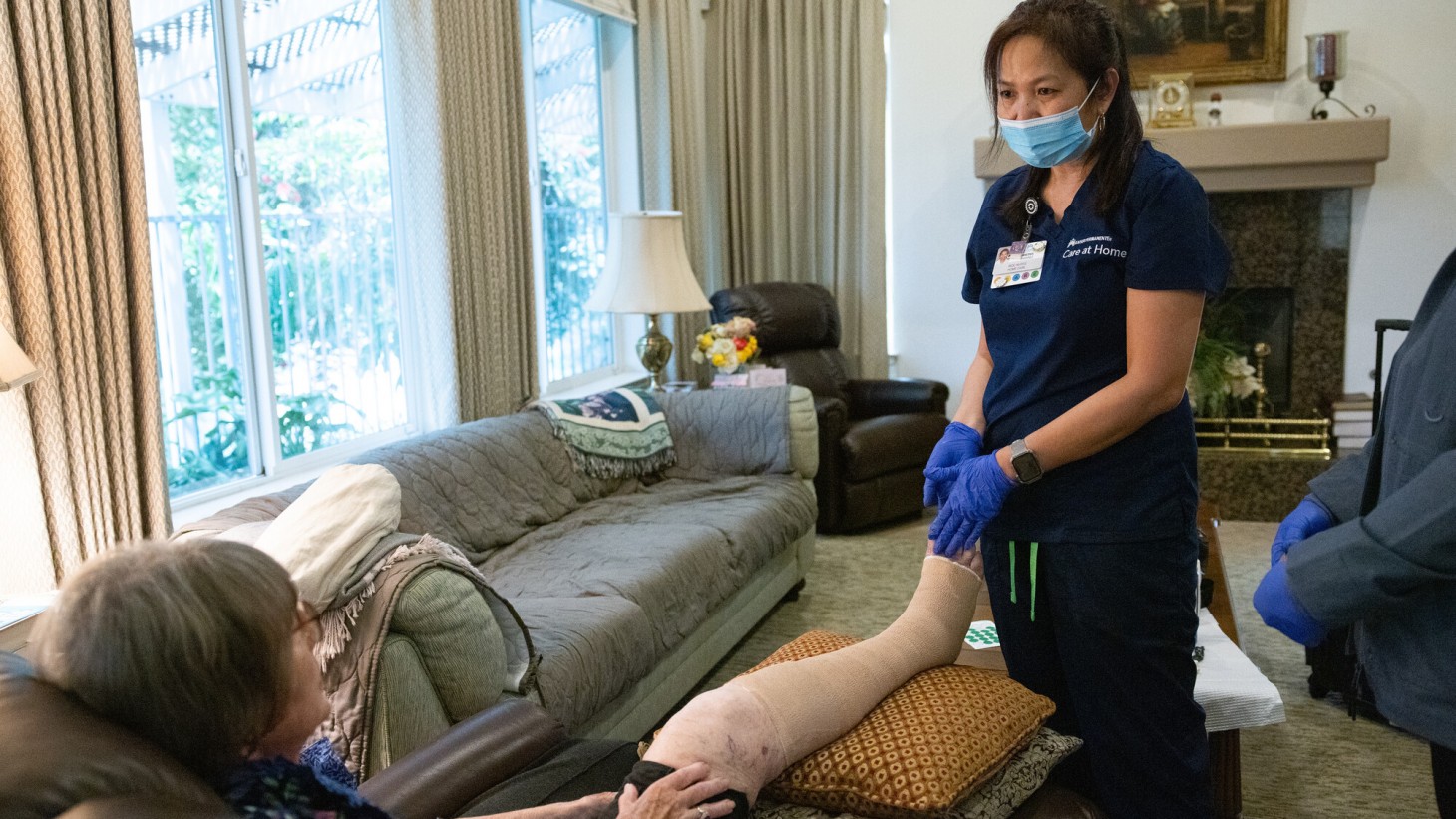
Ianessa Ramirez, a newly certified wound ostomy nurse and UNAC/UHCP member, tends to patient Marjorie McCall. Nurses certified to care for wounds and ostomies are in demand nationwide, including at Kaiser Permanente.
KP and Alliance team up to train wound care nurses
Time heals all wounds. But sometimes those wounds need help from specially trained nurses.
Nurses who are certified to care for wounds and ostomies are in short supply, at Kaiser Permanente and all over the country. And many are set to retire soon. There are only a few training programs, and they’re expensive and hard to get into.
The shortage of wound care nurses is an example of a much larger staffing crisis not only at KP but throughout the health care industry. KP, however, has a strategic advantage over its competitors: the Labor Management Partnership, which provides leaders and unions with the tools, structure and long-term relationships to respond to challenges creatively.
“We decided to look at what KP does best: We work with our labor partners to come up with a solution,” says Hazel Torres, RN, director of Regional Professional Development and Research Ambulatory Services for the Southern California Permanente Medical Group.
KP, several Alliance unions and other organizations came together to tackle this staffing shortage. Now more patients are healing faster, and union members are advancing in their careers at KP.
“I always wanted to do this but couldn’t,” says nurse Indra Winarso, a UNAC/UHCP member who had worked at KP for 22 years before entering the training program. “The schools were far away, my husband traveled a lot for work, and I had a young son to take care of.”
She’s now a certified wound ostomy nurse providing home health in Orange County for KP patients.
Fortified with her new certification, Winarso says, “I have more knowledge and can do more. Colleagues ask me for consults, and they believe in me.” The benefits go beyond professional growth and a higher wage: “They see that I am different from before.”
All together for a solution
KP regional leaders from Southern California, Colorado and Hawaii joined with representatives from 3 Alliance unions and the Ben Hudnall Memorial Trust – a union-negotiated benefit – to customize a training program with San Jose State University. Participating unions include UNAC/UHCP, UFCW Local 7, and Hawaii Nurses and Healthcare Professionals.
“It was star-studded,” says UNAC/UHCP member Ianessa Ramirez, a newly certified wound ostomy nurse, marveling at the hard-won coordination. Before taking the training program, Ramirez was a home health nurse and intake coordinator at KP for 11 years.
The students augmented online training with 4 days of hands-on training at KP’s Irvine Medical Center in summer 2021 for 22 students. After that, they spent time with trained preceptors — experienced wound care nurses and union members working at KP — and then were hired into trainee positions at KP.
This innovation shows one way to overcome the barrier of experience requirements. It also illustrates the value of skilling up our current workforce.
“We showed how true the Labor Management Partnership is,” says Torres. “It’s not just a logo on a T-shirt. We believe in it because it gets our patients the best care possible.”
The entire program was at no cost to participants. Most are now working full time in their new careers at KP after years of working here in other capacities.
As a home health nurse, “I am a detective and a problem-solver,” says Winarso. “It’s like a box of chocolates — you never know what you are going to get.”
